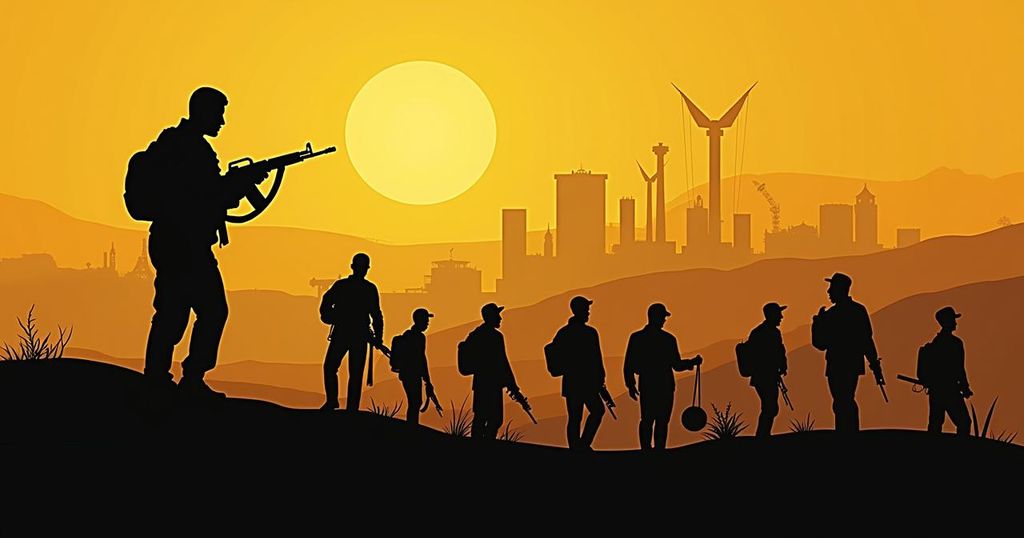Iran’s Support for Hezbollah Amidst Escalating Tensions in Lebanon

Israel’s military actions against Hezbollah have heightened the group’s crisis, compelling Iran to reaffirm its support. The recent visit of Iranian Foreign Minister Abbas Araghchi to Beirut has drawn critical responses from Lebanese citizens, reflecting their dissatisfaction with Iran’s influence in the country as regional powers contemplate a future without Hezbollah.
Recent developments in Lebanon have highlighted a significant shift as Israel intensifies its military actions against Hezbollah, complicating the role of Iran’s principal ally in the region. The Israeli Defense Forces (IDF) have been systematically targeting Hezbollah leaders, putting the group in a precarious position. In response, Iran is making efforts to bolster its support for Hezbollah, while other Middle Eastern nations begin to explore opportunities to establish a future for Lebanon independent of the Iranian-backed militia. Iranian Foreign Minister Abbas Araghchi’s recent visits to Beirut and Damascus have stirred discontent among the Lebanese populace. During his visit, he asserted, “We will stand with Lebanon,” a declaration met with skepticism and anger on social media platforms. Many citizens express frustration over Iran’s historical role in Lebanon’s turmoil, with comments such as, “Iran is sleeping quietly and Lebanon is paying the price,” and accusations that Iran has ultimately contributed to the nation’s suffering: “You’ve robbed the country and now you’re coming to stand with us,” a citizen lamented on X.
The context of this situation is rooted in the longstanding tensions and conflicts that beset Lebanon, particularly the involvement of Hezbollah, which has been a central force in Lebanese politics and military operations. Since the onset of the Syrian Civil War and subsequent regional instability, Iran has utilized Hezbollah as a means to extend its influence in Lebanon. However, recent military confrontations, particularly from Israel targeting Hezbollah’s leadership, signal a potential pivot in the political landscape. This opens avenues for other regional players to reconsider the dynamics in Lebanon, particularly concerning the balance of power and governance without Hezbollah’s predominant influence.
In conclusion, the unfolding scenario in Lebanon points to a pivotal moment in both Iranian involvement and Hezbollah’s future viability as Israel escalates its military strategies. The responses from Lebanese citizens further illustrate a growing discontent with Iran’s involvement in their country, suggesting a potential shift in public sentiment that may influence Lebanon’s political landscape. As Iran asserts its stance of support, it remains to be seen whether this will mitigate the pressures faced by Hezbollah or exacerbate existing tensions among regional powers.
Original Source: www.haaretz.com








